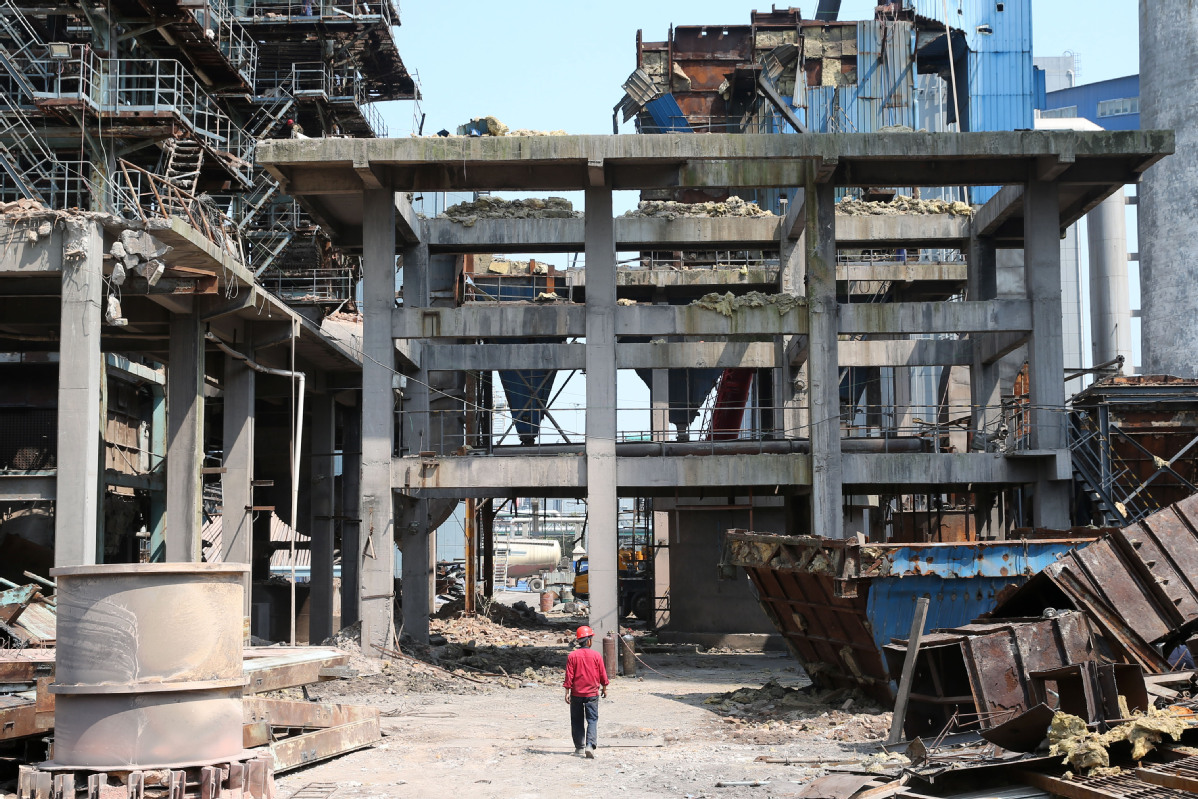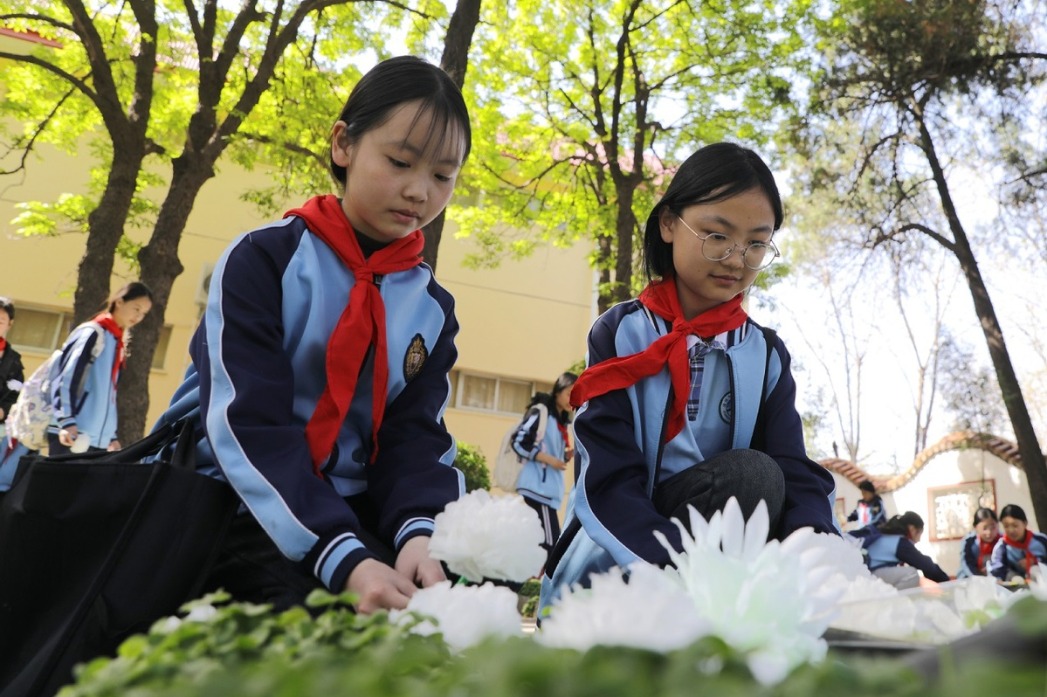Shutdown provides green catalyst


Coping with change
The fertilizer factory has scrapped old equipment and installed new apparatus, such as a facility that transports coal in a sealed pipe to prevent air pollution.
The company is also focusing on upgrading its products, and has gradually transformed itself into a producer of high-end chemicals and compound fertilizers.
Last year, non-fertilizer chemical products accounted for almost 50 percent of its output.
At one time, the plant manufactured large quantities of superphosphate, a popular agricultural fertilizer.
"But when it burns, it produces a dusty red gas, which is difficult to control and pervades everything. It polluted the area badly, so we shut down the production line," said Li Wanqing, the company's chairman.
The company now plans to manufacture environmentally cleaner materials.
For example, it will invest 10 billion yuan to build a green production line for the production of ethylene glycol, an ingredient of polyesters used to make clothing.
Old ideas are also being challenged.
"A couple of decades ago, there were almost no environmental regulations governing companies, so we only thought of making products as cheaply as possible, as fast as possible, and then selling them as quickly as possible. Now the concept has changed. Safety and environmental protection are the foundations of the chemical industry's development. Without environmental protection, the business will die," Li said.
The company spends as much as 8 percent of its financial resources on environmental protection every year.
Meanwhile, Hubei Xingfa Chemical Group, which has assets of about 32 billion yuan and 10,500 employees and is listed on the Shanghai Stock Exchange, is focusing on using waste as a production resource to reduce pollution.
Song Guisheng, head of the office that oversees the group's new materials park, said the company has installed a purification system that renders harmless the gases emitted when phosphorus is burned.
In addition, a new recycling facility allows wastewater, gases and solid waste to be recycled and used in the production process.
Li, from Hubei Sanning, said the production of chemicals consumes source ingredients and energy, which results in waste. Now, advanced technology not only reduces the volume of waste produced but also uses it to produce more goods.
The trend among companies in Yichang is to move into high-end products with better added-value and manufacture a greater range of products as a means of boosting profits.
For example, Hubei Sanning sold ammonium bicarbonate, a source of fertilizer, for about 600 yuan per metric ton, but the new ethylene glycol sells for 19,000 yuan a ton.
Business owners are profiting from the discovery of new products that has occurred as a result of their efforts to boost environmental protection. But for workers, the cleaner air they breathe is accompanied by uncertainty and inconvenience.
- Huzhou to spend 1b yuan per year to develop green finance
- Hong Kong displays its financial charms in pitch to Bay Area
- Green revolution quickens China's carbon goal
- Green vehicles to drive capital's logistics industry progress
- China boosts financial support for small firms, green economy with MLF collateral rules




































